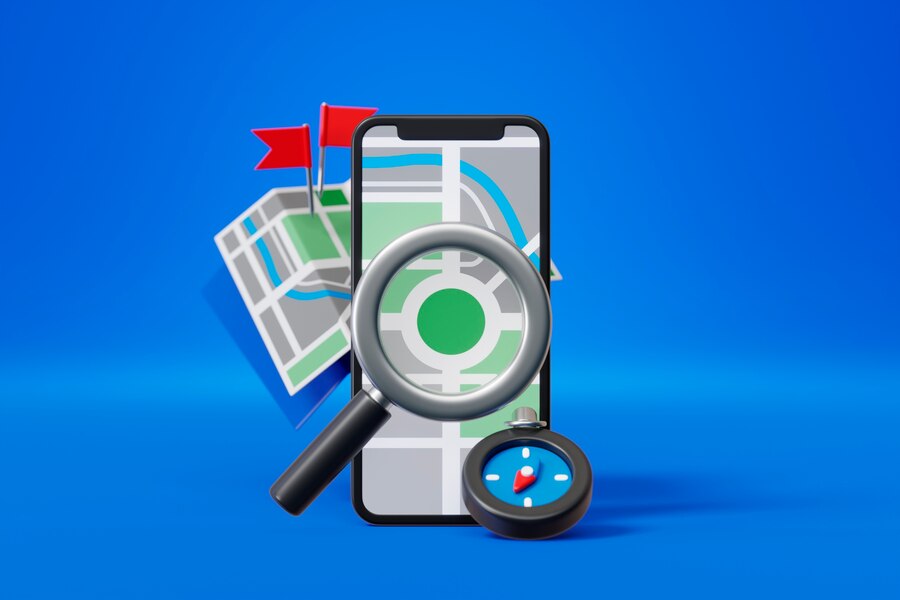
Ecommerce Website Development Dubai
Looking to take your business to new heights? Look no further than ecommerce website development in Dubai. In today’s digital age, a strong online presence is essential for businesses of all sizes. With its booming ecommerce market, Dubai presents a lucrative opportunity to propel your sales and reach a wider customer base.
Ecommerce website development Dubai combines cutting-edge technology and strategic design to create user-friendly platforms that drive sales. Whether you’re a small start-up or an established brand, an ecommerce website can revolutionize your business by providing a seamless shopping experience for your customers. From intuitive navigation to secure payment gateways, every aspect of the website is optimized to enhance conversion rates and maximize revenue.
But it’s not just about having a website; it’s about having the right website. With a team of experienced professionals, ecommerce website development in Dubai ensures that your site is tailored to meet your specific business needs and objectives. From responsive design to mobile optimization, they leverage the latest trends and techniques to create a dynamic online store that stands out from the competition.
Gain a competitive edge and boost your sales with ecommerce website development in Dubai. Take the first step towards digital success today.

The importance of Ecommerce Website Development
In today’s fast-paced world, having a strong online presence is crucial for businesses to thrive. Ecommerce website development plays a vital role in establishing and expanding your digital footprint. It allows you to reach a global audience, increase brand awareness, and drive sales like never before. By investing in ecommerce website development, you can tap into the immense potential of the online marketplace and take your business to new heights.
Benefits of having an Ecommerce Website
Having an ecommerce website offers a multitude of benefits for your business. Firstly, it provides a convenient and accessible shopping experience for your customers. With just a few clicks, they can browse through your products, compare prices, and make purchases from the comfort of their own homes. This convenience factor not only attracts more customers but also encourages repeat purchases, leading to increased sales and customer loyalty.
Secondly, an ecommerce website allows you to showcase your products and services in a visually appealing manner. You can use high-quality images, videos, and product descriptions to entice your customers and highlight the unique selling points of your offerings. This visual representation enhances the overall customer experience and makes it easier for them to make informed buying decisions.
Furthermore, an ecommerce website provides valuable insights into your customers’ behavior and preferences. Through analytics and tracking tools, you can gather data on their browsing habits, purchase history, and demographics. This information can be used to personalize the shopping experience, target specific customer segments, and implement effective marketing strategies.
Related Search: Importance of White Label Website Development
Ecommerce Website Development trends in Dubai
Dubai’s ecommerce market is constantly evolving, and staying updated with the latest trends is crucial to stay ahead of the competition. Here are some key ecommerce website development trends in Dubai:
- Mobile Commerce: With the increasing use of smartphones, mobile commerce has become a dominant force in the ecommerce industry. Ecommerce website development in Dubai focuses on creating mobile-responsive websites that provide a seamless shopping experience across all devices.
- Personalization: Personalized shopping experiences are highly valued by customers. Ecommerce website development in Dubai incorporates personalization features such as product recommendations, customized offers, and tailored content to enhance customer engagement and increase conversion rates.
- Social Commerce: Social media platforms have become powerful marketing tools. Ecommerce website development in Dubai integrates social commerce features, allowing customers to make purchases directly from social media platforms, thereby expanding the reach of your business.
- Voice Search Optimization: Voice search is gaining popularity, and ecommerce website development in Dubai optimizes websites for voice search queries to ensure maximum visibility and accessibility for customers.
By incorporating these trends into your ecommerce website, you can stay ahead of the curve and provide an exceptional shopping experience for your customers.
Choosing the Right Ecommerce Platform for Your Business
Choosing the right ecommerce platform is crucial for the success of your online store. There are several factors to consider when selecting an ecommerce platform for your business in Dubai:
- Scalability: Your ecommerce platform should be able to handle increasing traffic and sales as your business grows. Look for platform like Wappex Solutions offer scalability and flexibility to accommodate future expansion.
- Customization: Every business is unique, and your ecommerce platform should allow for customization to reflect your brand identity and meet your specific requirements. Look for platforms that offer extensive customization options.
- Integration: Your ecommerce platform should easily integrate with other tools and systems, such as payment gateways, inventory management software, and marketing automation tools. This seamless integration ensures smooth operations and enhances the overall customer experience.
- Security: Ecommerce transactions involve sensitive customer information, so security is of utmost importance. Choose a platform that provides robust security features, such as SSL encryption and secure payment gateways, to protect your customers’ data.
- Support and Updates: Look for platforms that offer reliable customer support and regular updates. This ensures that any technical issues are promptly resolved, and your website stays up to date with the latest features and security patches.
By carefully considering these factors, you can choose an ecommerce platform that aligns with your business goals and sets the foundation for a successful online store.

Planning Your Ecommerce Website Development Project
Planning is a crucial phase of ecommerce website development. Before diving into the development process, it’s essential to outline your goals, target audience, and budget. Here are some key steps to consider when planning your ecommerce website development project:
- Define your goals and objectives: Clearly define what you want to achieve with your ecommerce website. Whether it’s increasing sales, expanding into new markets, or enhancing customer engagement, having clear goals will guide the entire development process.
- Identify your target audience: Understand your target audience’s demographics, preferences, and buying behavior. This knowledge will help you create a user-centric website that resonates with your customers and drives conversions.
- Perform competitor analysis: Analyze your competitors’ websites to identify their strengths and weaknesses. This analysis will help you differentiate your website and offer unique value propositions to your customers.
- Create a comprehensive budget: Determine how much you’re willing to invest in your ecommerce website development project. Consider all aspects, including design, development, hosting, and ongoing maintenance.
- Outline your website structure: Plan the layout and structure of your website, including categories, subcategories, and product pages. This organization will make it easier for customers to navigate and find what they’re looking for.
By carefully planning your ecommerce website development project, you can streamline the development process and ensure that your website meets your business objectives and customer expectations.
Key Features and Functionalities to include in Your Ecommerce Website
To create a successful ecommerce website, there are several key features and functionalities that you should consider incorporating:
- User-friendly navigation: Ensure that your website has intuitive navigation and a clear hierarchy of categories and subcategories. This makes it easy for customers to browse and find products.
- Search functionality: Implement a robust search feature that allows customers to search for specific products or keywords. Include filtering options to refine search results and improve the overall user experience.
- Product pages: Create visually appealing and informative product pages. Include high-quality images, detailed descriptions, pricing information, and customer reviews to help customers make informed buying decisions.
- Shopping cart and checkout process: Streamline the checkout process by making it simple and secure. Implement a user-friendly shopping cart that allows customers to easily add, edit, and remove items before making a purchase.
- Wishlist and saved items: Enable customers to save products to their wishlist for future reference and easy access. This feature encourages return visits and helps customers keep track of their desired items.
- Customer reviews and ratings: Incorporate a customer review system that allows customers to leave feedback and ratings for products. Positive reviews build trust and boost sales, while negative reviews provide valuable insights for improvement.
- Integration with social media: Enable customers to share products on social media platforms and provide social login options for a seamless login and registration process.
Optimizing Your Ecommerce Website for Search Engines
Search engine optimization (SEO) is crucial for driving organic traffic to your ecommerce website. Here are some key strategies to optimize your website for search engines:
- Keyword research: Identify relevant keywords that align with your products and target audience. Use these keywords strategically in your website content, meta tags, and URLs to improve search engine rankings.
- Unique and engaging content: Create unique and engaging product descriptions, blog posts, and landing pages. High-quality content not only improves SEO but also enhances the overall user experience and encourages conversions.
- Optimized page titles and meta descriptions: Craft compelling page titles and meta descriptions that accurately describe your products and entice users to click on your website in search engine results.
- Mobile optimization: Ensure that your website is mobile-responsive and provides a seamless browsing experience on smartphones and tablets. Google prioritizes mobile-friendly websites in search rankings.
- Fast loading speed: Optimize your website for fast loading speed to improve user experience and reduce bounce rates. Use compression techniques, optimize images, and leverage caching to enhance website performance.
- Structured data markup: Implement structured data markup to provide search engines with additional information about your products, such as prices, ratings, and availability. This helps search engines display rich snippets in search results, attracting more clicks.
By implementing these SEO strategies, you can improve your website’s visibility in search engine rankings and attract more organic traffic to your online store.
Integrating Payment Gateways and Secure Checkout Process
A seamless and secure checkout process is essential for customer satisfaction and trust. Integrating reliable payment gateways and ensuring the security of customer information are crucial steps in ecommerce website development. Here’s how you can achieve this:
- Choose trusted payment gateways: Select payment gateways that are widely recognized and trusted by customers. Popular options include PayPal, Stripe, and Braintree. These gateways offer secure payment processing and protect customer data.
- SSL encryption: Implement SSL encryption on your website to secure customer data during the checkout process. SSL certificates ensure that customer information, such as credit card details, is encrypted and transmitted securely.
- Offer multiple payment options: Provide customers with a variety of payment options, such as credit cards, debit cards, digital wallets, and bank transfers. This flexibility improves the customer experience and increases the likelihood of completing a purchase.
- Streamline the checkout process: Simplify the checkout process by minimizing the number of steps and form fields. Enable guest checkout for customers who prefer not to create an account. The easier and faster the checkout process, the higher the conversion rates.
- Trust badges and security seals: Display trust badges and security seals, such as SSL certificates and payment logos, prominently on your website. These visual cues reassure customers about the security of their transactions and build trust.
By integrating secure payment gateways and optimizing the checkout process, you can provide a secure and hassle-free shopping experience that encourages customers to complete their purchases.
Mobile Responsiveness and User Experience in Ecommerce Website Development
In today’s mobile-centric world, mobile responsiveness and user experience are critical factors in ecommerce website development. Here’s why they matter:
- Mobile traffic: A significant portion of ecommerce traffic comes from mobile devices. By ensuring that your website is mobile-responsive, you can provide a seamless browsing experience across all devices and capture a larger audience.
- User-friendly design: Create a user-friendly design that is intuitive and easy to navigate. Use clear calls-to-action, logical menus, and prominent search functionality to enhance the overall user experience.
- Fast loading speed: Mobile users have shorter attention spans, and slow loading websites can lead to high bounce rates. Optimize your website for fast loading speed to provide a smooth and enjoyable browsing experience.
- Thumb-friendly navigation: Consider the ergonomics of mobile devices and design your website with thumb-friendly navigation. Place important elements within easy reach of the thumb to improve usability.
- Responsive images and videos: Optimize images and videos for mobile devices to ensure fast loading times and optimal viewing experiences. Use responsive design techniques to automatically adjust image sizes based on the device’s screen resolution.
By prioritizing mobile responsiveness and user experience in ecommerce website development, you can cater to the growing number of mobile shoppers and provide an exceptional browsing experience that drives conversions.
Conclusion: Leveraging Ecommerce Website Development to Drive Sales in Dubai
Ecommerce website development in Dubai offers immense opportunities for businesses to boost sales and reach a wider customer base. By investing in a well-designed and user-friendly ecommerce website, you can provide a seamless shopping experience, increase brand visibility, and tap into the growing online marketplace. From choosing the right ecommerce platform to optimizing for search engines and mobile devices, every aspect of ecommerce website development plays a crucial role in driving sales and propelling your business to new heights. Take the first step towards digital success today and leverage the power of ecommerce website development in Dubai.
Feel Free to Contact Us



